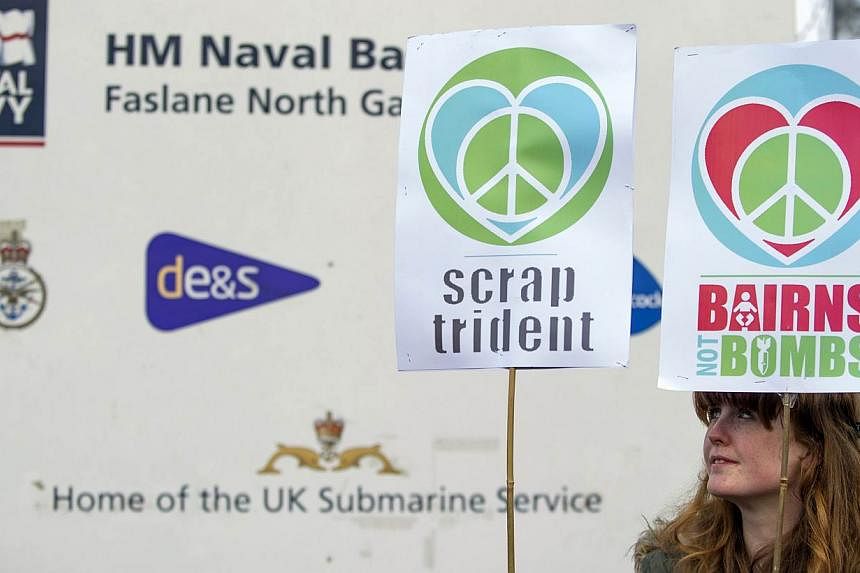LONDON (AFP) - A junior British serviceman who published allegations of safety and security lapses around Britain's submarine-based nuclear missile defence system is now in military police custody, the Royal Navy said on Tuesday.
William McNeilly, 25, claimed Britain's nuclear deterrent was a "disaster waiting to happen" and vulnerable to a terror attack.
The newly qualified engineer published an 18-page report on the Internet entitled "The Nuclear Secrets" last week then went absent without leave.
He said he intended to hand himself in and is now being detained at a military establishment.
McNeilly said he was expecting to face jail.
"We can confirm that Able Seaman McNeilly was apprehended last night and is now in the custody of the Royal Navy Police at a military establishment in Scotland where he is being afforded the duty of care that we give to all of our people," a Royal Navy spokesman said.
"The Royal Navy disagrees with McNeilly's subjective and unsubstantiated personal views but we take the operation of our submarines and the safety of our personnel extremely seriously and so continue to fully investigate the circumstances of this issue." A Facebook post understood to be from McNeilly's brother said the serviceman handed himself in.
McNeilly's report alleged 30 safety and security flaws surrounding the submarines, which are based on the west coast of Scotland.
McNeilly claimed there were fire risks and leaks on board and that security checks were rarely conducted on personnel and contractors working on the submarines in dock.
He also alleged that alarms had been muted because they went off so often, missile safety procedures had been ignored and top secret information was left unguarded.
The current Trident missile-based nuclear weapons system is reaching the end of its operational shelf life and debate about whether to renew it was one of the key topics in the British general election earlier this month.
Prime Minister David Cameron's Conservatives, which formed a majority government after the May 7 vote, are committed to replacing the four submarines "to provide the ultimate guarantee of our safety".

